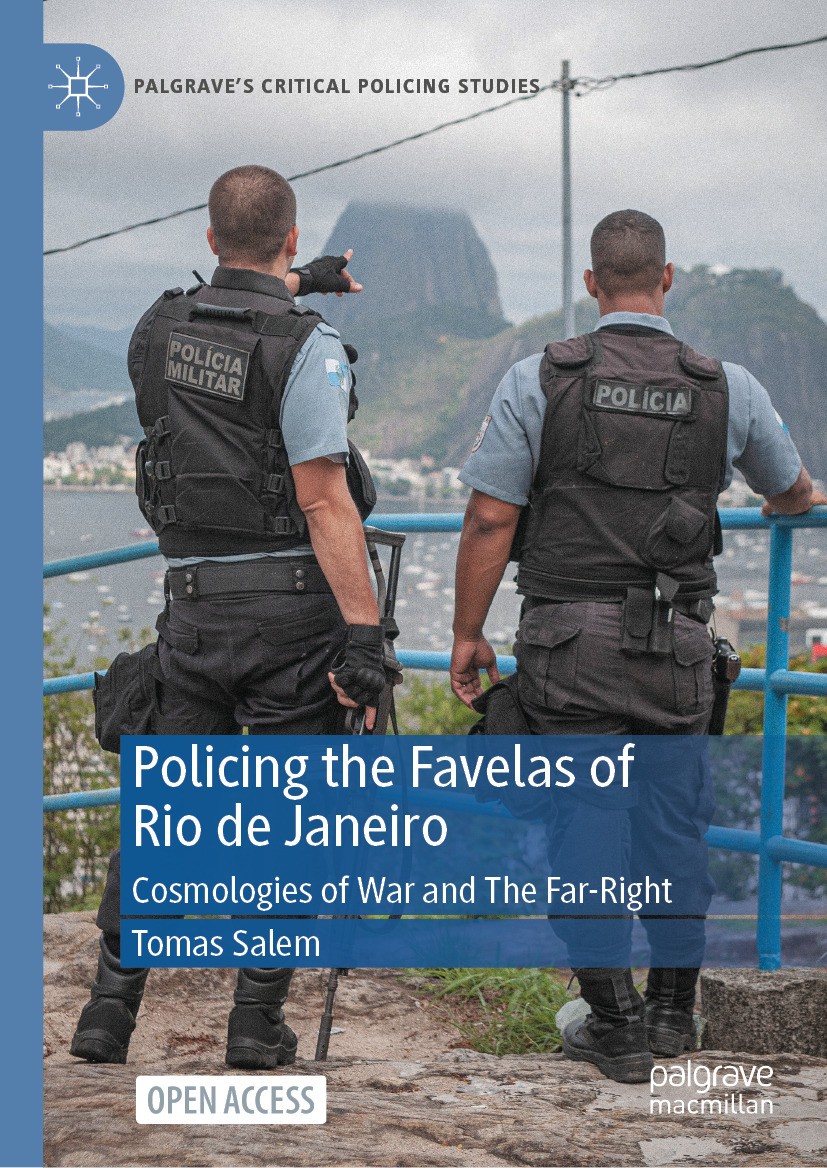| 书目名称 | Policing the Favelas of Rio de Janeiro |
| 副标题 | Cosmologies of War a |
| 编辑 | Tomas Salem |
| 视频video | http://file.papertrans.cn/750/749896/749896.mp4 |
| 概述 | Offers a rich and nuanced ethnography of the world of policing within one of the most deadly police force.This is an open access book.Examines how social relations and an authoritarian order is constr |
| 丛书名称 | Palgrave‘s Critical Policing Studies |
| 图书封面 |  |
| 描述 | .This book offers a unique look into the world of policing and the frontline of Brazil’s war on drugs. It analyzes the tensions produced by attempts to modernize Rio de Janeiro’s public security policies. Since the return of democracy in 1985, Rio‘s police forces have waged war against armed drug gangs based in the city’s favelas, casting the people who live in these communities as internal enemies. In preparation for the Olympics in 2016, the police sought to ‘pacify’ the favelas and their populations through the establishment of Pacifying Police Units (UPPs) in many of the city’s favela communities. Drawing on eight months of ethnographic fieldwork with the police, this book follows officers across the institutional hierarchy in their daily activities, on patrol, and during training. Tracing the genealogies of contemporary forms of policing-as-warfare through the notion of ‘colonial war’ and ‘cultural war’, it highlights the material and ideational dimensions of war as a cosmological force that shapes Brazilian social relations, subjectivities, landscapes, economies, and politics. It draws on the Deleuzian notion of ‘war machine and state dynamics’ to show how practices of elimin |
| 出版日期 | Book‘‘‘‘‘‘‘‘ 2024 |
| 关键词 | Militarization; war; masculinity; race; predatory accumulation; necropolitics; fascism; post-colonial studi |
| 版次 | 1 |
| doi | https://doi.org/10.1007/978-3-031-49027-9 |
| isbn_softcover | 978-3-031-49029-3 |
| isbn_ebook | 978-3-031-49027-9Series ISSN 2730-535X Series E-ISSN 2730-5368 |
| issn_series | 2730-535X |
| copyright | The Editor(s) (if applicable) and The Author(s) 2024 |
 |Archiver|手机版|小黑屋|
派博传思国际
( 京公网安备110108008328)
GMT+8, 2026-2-9 14:23
|Archiver|手机版|小黑屋|
派博传思国际
( 京公网安备110108008328)
GMT+8, 2026-2-9 14:23


